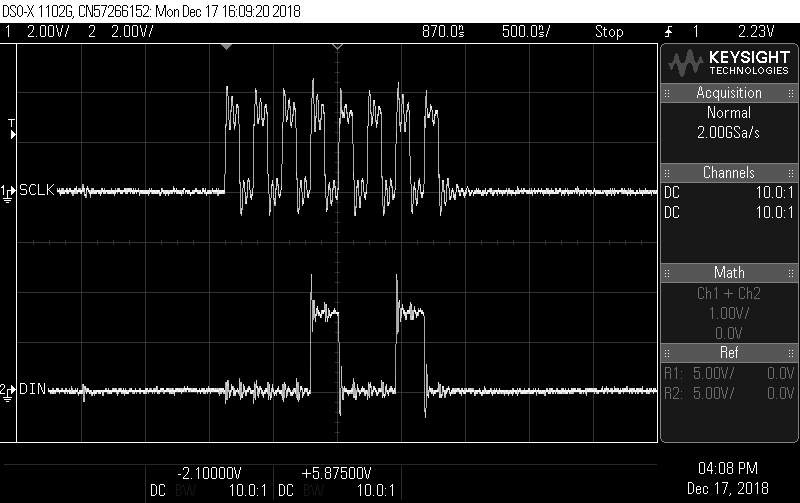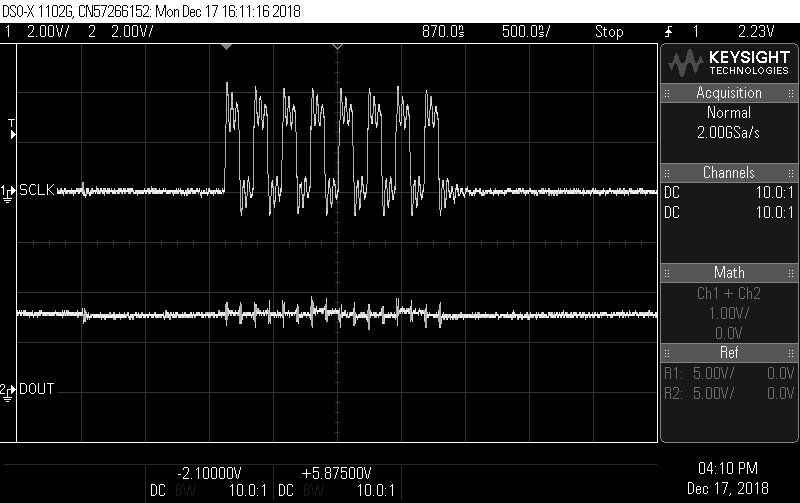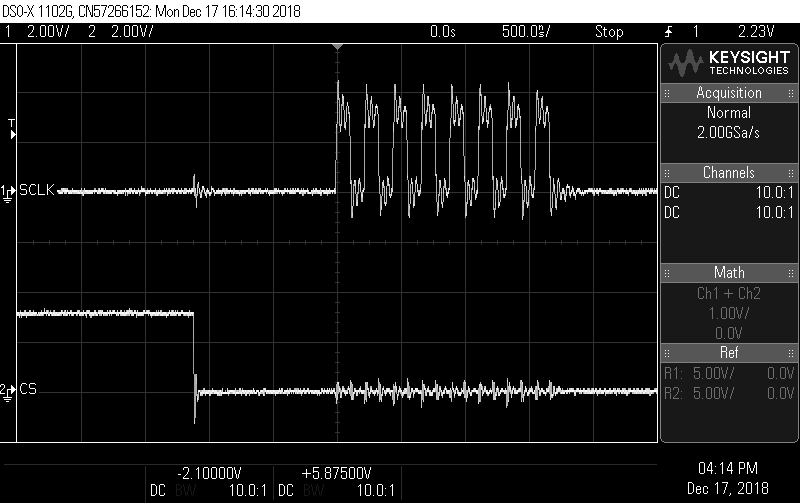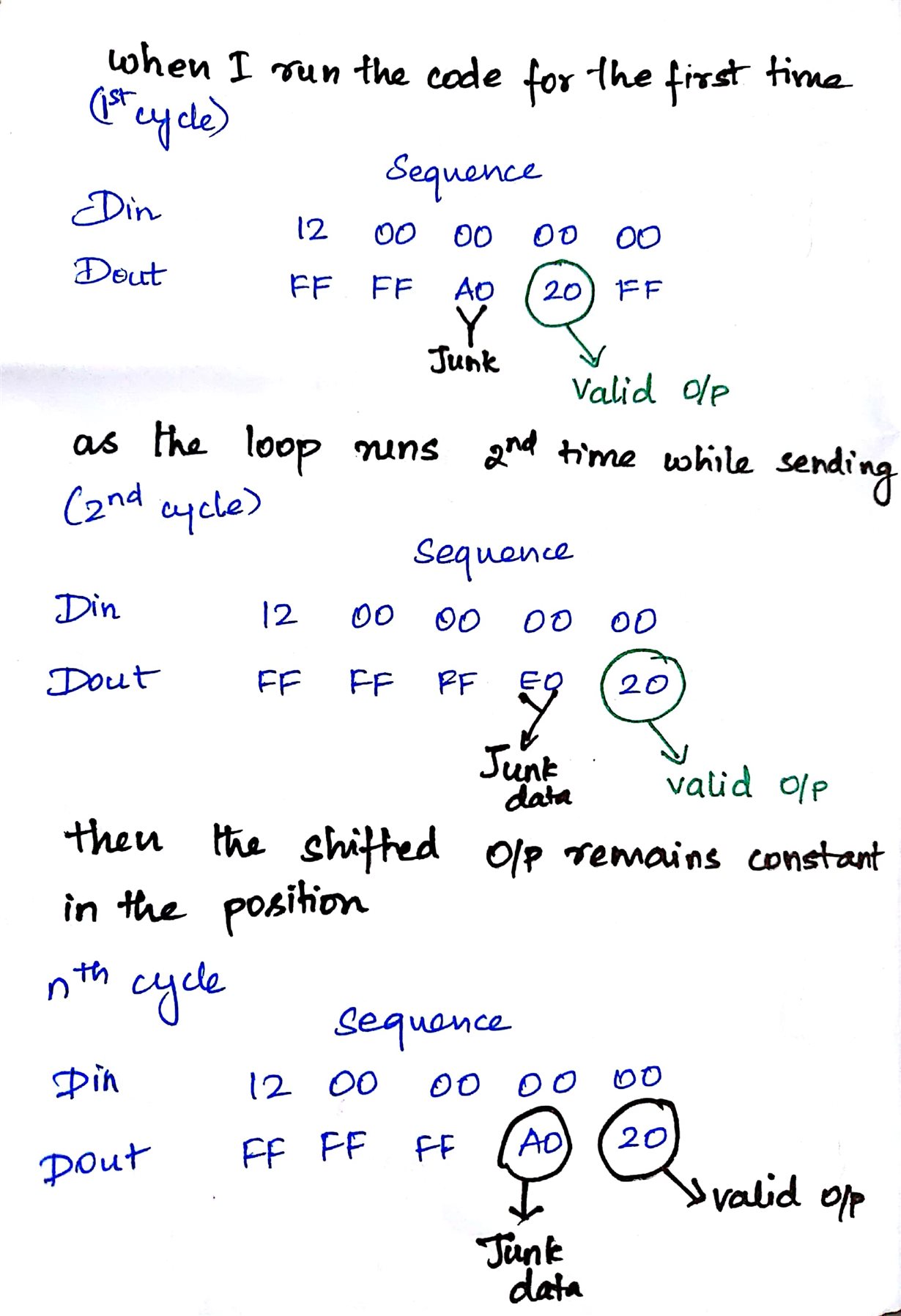Hi,
ADS1256 is not responding. i have set my SPI clock to 4.5MHz and mode1. I tried to read all the registers one at a time using two byte command and my dout is sometimes 00 and ff. my connection are as follows
cs is held low during the read function.
VrefN = GND
VrefP = 2.5V
PDWN/SYNC = 3.3V
RESET = 3.3V
AVdd = 5V
DRDY is connected to a gpio





